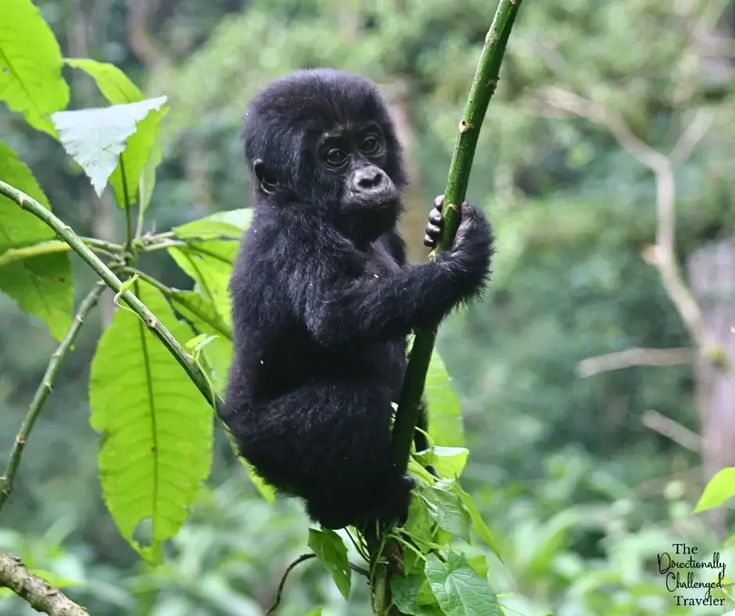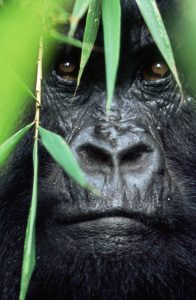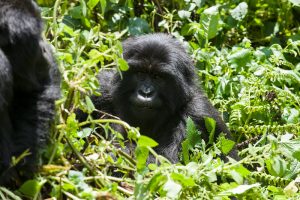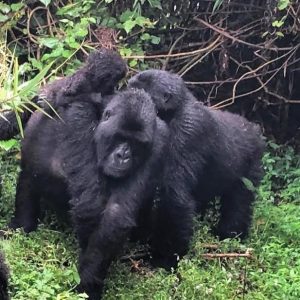Is Uganda Safe for Safari Tourists?
Uganda is considered one of the safest safari destinations in East Africa. The country has made significant investments in tourism security, with dedicated ranger patrols in all national parks and strict conservation laws. Visitors on safari are typically accompanied by licensed guides and rangers who ensure both safety and compliance with park rules. Tourist incidents inside safari parks are extremely rare, as authorities prioritize keeping protected areas safe for visitors. While general safety precautions apply as in any international travel, Uganda’s safari circuit from gorilla trekking in Bwindi Impenetrable National Park to game drives in Queen Elizabeth National Park is regarded as secure and well-regulated. Uganda Safety for Safari.
What Are the Safest National Parks to Visit in Uganda?
All major national parks in Uganda are safe for tourists, but some destinations stand out due to their popularity and established safety measures. Bwindi Impenetrable National Park and Mgahinga Gorilla National Park are highly secure, particularly because of gorilla trekking regulations that require every trek to be guided by armed rangers. Queen Elizabeth National Park, Murchison Falls National Park, and Kibale National Park also maintain strong ranger presence and regulated visitor systems. Smaller parks like Lake Mburo National Park and Kidepo Valley National Park are equally safe, though travelers are always advised to use licensed tour operators to ensure professional guidance and security. Uganda Safety for Safari.
Is It Safe to Visit Bwindi Impenetrable National Park?
Yes. Bwindi Impenetrable National Park, home to over half of the world’s remaining mountain gorillas, is strictly protected. Gorilla trekking groups are limited to a maximum of eight people per gorilla family per day, and every trek is led by professional guides and armed rangers. This ensures both tourist safety and the protection of the gorillas. The park authorities also monitor health protocols closely to prevent disease transmission between humans and gorillas. With strict regulations and an organized trekking system, Bwindi is one of the safest wildlife destinations in Africa. Uganda Safety for Safari.
Are Gorilla Trekking Safaris in Uganda Safe?
Gorilla trekking is very safe in Uganda. Each trek begins with a safety briefing where visitors are instructed on how to behave in the forest and around gorillas. Trekkers are accompanied by experienced guides and armed rangers who track the gorillas daily and ensure that visitors remain safe. Tourists are required to maintain a safe distance of at least seven meters from the gorillas, which minimizes risks of aggression or disease transmission. The gorillas visited are habituated—accustomed to human presence making encounters safe and predictable. Uganda Wildlife Authority regulations and enforcement guarantee a secure trekking environment. Uganda Safety for Safari.
Is Queen Elizabeth National Park Safe for Tourists?
Queen Elizabeth National Park is one of Uganda’s most visited parks, known for tree-climbing lions, boat cruises on the Kazinga Channel, and diverse wildlife. The park maintains a strong ranger presence, and guided game drives are the standard for visitors. Tourists are always advised to stay inside vehicles during game drives and to follow the instructions of their guides. The park enforces speed limits and designated drive zones to ensure safety. Night drives are permitted only under guided supervision, further reducing risks. With these measures in place, the park remains a safe safari destination. Uganda Safety for Safari.
Do I Need a Guide for Safaris in Uganda?
Yes, hiring a professional guide is strongly recommended and often required. In gorilla and chimpanzee trekking destinations, guides and rangers are mandatory. Even in savannah parks like Murchison Falls or Queen Elizabeth, a guide significantly enhances safety by navigating the terrain, spotting wildlife, and ensuring compliance with park rules. While self-drive safaris are possible in some parks, having a professional guide provides added security and expertise, especially in areas with large predators or challenging road conditions.
Is It Safe to Do a Self-Drive Safari in Uganda?
Self-drive safaris in Uganda are possible but require caution. Road conditions can be rough, especially during rainy seasons, and navigating without local knowledge can be difficult. Wildlife encounters pose additional risks if safety rules are not strictly followed. While some travelers choose self-drives in parks like Lake Mburo, it is generally safer and more rewarding to use professional guides. Tour operators also provide reliable vehicles and 24/7 support, which enhances both convenience and safety. For first-time visitors, guided safaris are the best option.
How Safe Is Kampala for Tourists Before or After Safari?
Kampala, Uganda’s capital city, is generally safe for tourists, especially in well-known neighborhoods, hotels, and shopping centers. Like many large cities, it requires basic precautions: avoiding isolated areas at night, using registered taxis or ride-hailing apps, and safeguarding valuables. Most safari travelers spend only a night or two in Kampala before heading to the national parks, and tourist-friendly areas are well-policed. Visitors who follow common-sense safety practices usually encounter no issues.
What Vaccinations Are Required for a Uganda Safari?
Travelers to Uganda are required to present proof of yellow fever vaccination upon entry. This is a government regulation and is strictly enforced at Entebbe International Airport. In addition to yellow fever, recommended vaccines include hepatitis A and B, typhoid, tetanus, and meningitis. COVID-19 vaccination may also be required depending on the latest travel advisories. Travelers should consult their doctor or a travel health clinic before departure to ensure they are up to date with recommended immunizations for East Africa.
Is Malaria a Risk on Safari in Uganda?
Yes, malaria is present in Uganda, and all safari travelers should take preventive measures. This includes taking prescribed antimalarial medication, using insect repellent, and sleeping under mosquito nets where provided. Most lodges in national parks are equipped with nets and may also spray rooms to reduce mosquito presence. Wearing long sleeves and trousers in the evenings further minimizes risk. While malaria remains a concern, travelers who take these precautions significantly reduce their chances of infection.
Are Night Game Drives in Uganda Safe?
Night game drives in Uganda are safe but only when conducted under professional guidance. Not all parks allow night drives, but in those that do—such as Queen Elizabeth National Park and Lake Mburo tourists must be accompanied by guides and rangers. Night drives use spotlights to reveal nocturnal animals like hyenas, leopards, and bush babies. Safety measures include staying inside the vehicle at all times and following ranger instructions. These rules ensure that the activity is both exciting and secure.
What Should I Do If I Encounter Dangerous Wildlife in Uganda?
Encounters with potentially dangerous wildlife such as elephants, lions, or hippos are part of the safari experience, but safety depends on following the rules. Tourists should never leave their vehicle during game drives unless in designated areas. During gorilla or chimpanzee trekking, maintaining the required distance and avoiding sudden movements prevents problems. Guides provide clear instructions on how to behave if an animal approaches, and their experience ensures tourists remain safe. Respecting wildlife and never attempting to feed or provoke animals is essential for safety.
Are Lodges and Safari Camps in Uganda Secure?
Yes, lodges and safari camps in Uganda are secure. Most accommodations inside or near national parks are fenced or patrolled by guards. Campsites are monitored, and staff are trained to handle wildlife encounters. Visitors are advised not to walk alone at night in unfenced camps but to request escorts from lodge staff. Rooms and tents are lockable, and valuables can be stored securely. Tourists generally find lodges and camps safe, with hospitality staff ensuring a secure and comfortable stay.
Is Domestic Air Travel in Uganda Safe for Safari Trips?
Domestic flights are commonly used to access remote safari destinations such as Kidepo Valley or Bwindi Impenetrable National Park. These flights are operated by licensed companies and are considered safe. Aircraft are regularly maintained, and pilots are experienced in East African routes. Using domestic flights saves long driving hours and offers scenic views of Uganda’s landscapes. Safety records for these operators are strong, making air travel a reliable option for safari-goers.
Do I Need Travel Insurance for a Uganda Safari?
Yes, travel insurance is highly recommended for safaris in Uganda. Insurance should cover medical emergencies, evacuation, lost baggage, and trip cancellations. Gorilla trekking permits and safari tours are non-refundable, so insurance can help recover costs in case of unexpected disruptions. Some lodges and tour operators may require proof of insurance before confirming bookings. Having coverage ensures peace of mind and financial protection during your safari.
How Safe Is It to Drink Water While on Safari in Uganda?
Tap water in Uganda is not recommended for drinking. Safari travelers should stick to bottled or filtered water, which is widely available in lodges, camps, and vehicles. Most accommodations provide safe drinking water as part of their hospitality. Ice in drinks should be avoided unless confirmed to be made from purified water. By drinking only bottled or treated water, tourists can avoid common travel illnesses and enjoy a safe safari experience.
Are There Travel Advisories for Uganda Safari Destinations?
Travel advisories for Uganda are periodically issued by different countries, but they typically encourage caution rather than restriction. The safari regions remain safe, and most advisories highlight general precautions for large cities or border areas rather than national parks. Tourists are advised to check their government’s latest travel advisory before departure and to register with their embassy if required. On the ground, safari parks operate normally and remain open to international visitors.
Is It Safe to Combine Safaris in Uganda with Trips to Rwanda or Kenya?
Yes, combining safaris across Uganda, Rwanda, and Kenya is safe and very common. Tour operators often create itineraries that allow travelers to experience gorilla trekking in Uganda, golden monkey tracking in Rwanda, and big game safaris in Kenya. Borders between these countries are well managed, and tourist routes are established. Travelers should ensure they have the appropriate visas and vaccinations, but safety is not an obstacle to multi-country safari itineraries in East Africa.
Uganda Is a Safe and Rewarding Safari Destination
Uganda offers secure and unforgettable safari experiences, from gorilla trekking in Bwindi to game drives in Murchison Falls. With strict regulations, experienced guides, and robust health and safety measures, tourists can explore the country confidently. By following professional guidance, respecting wildlife, and taking basic health precautions, visitors will find Uganda not only safe but also one of the most rewarding safari destinations in Africa. Uganda Safety for Safari.




